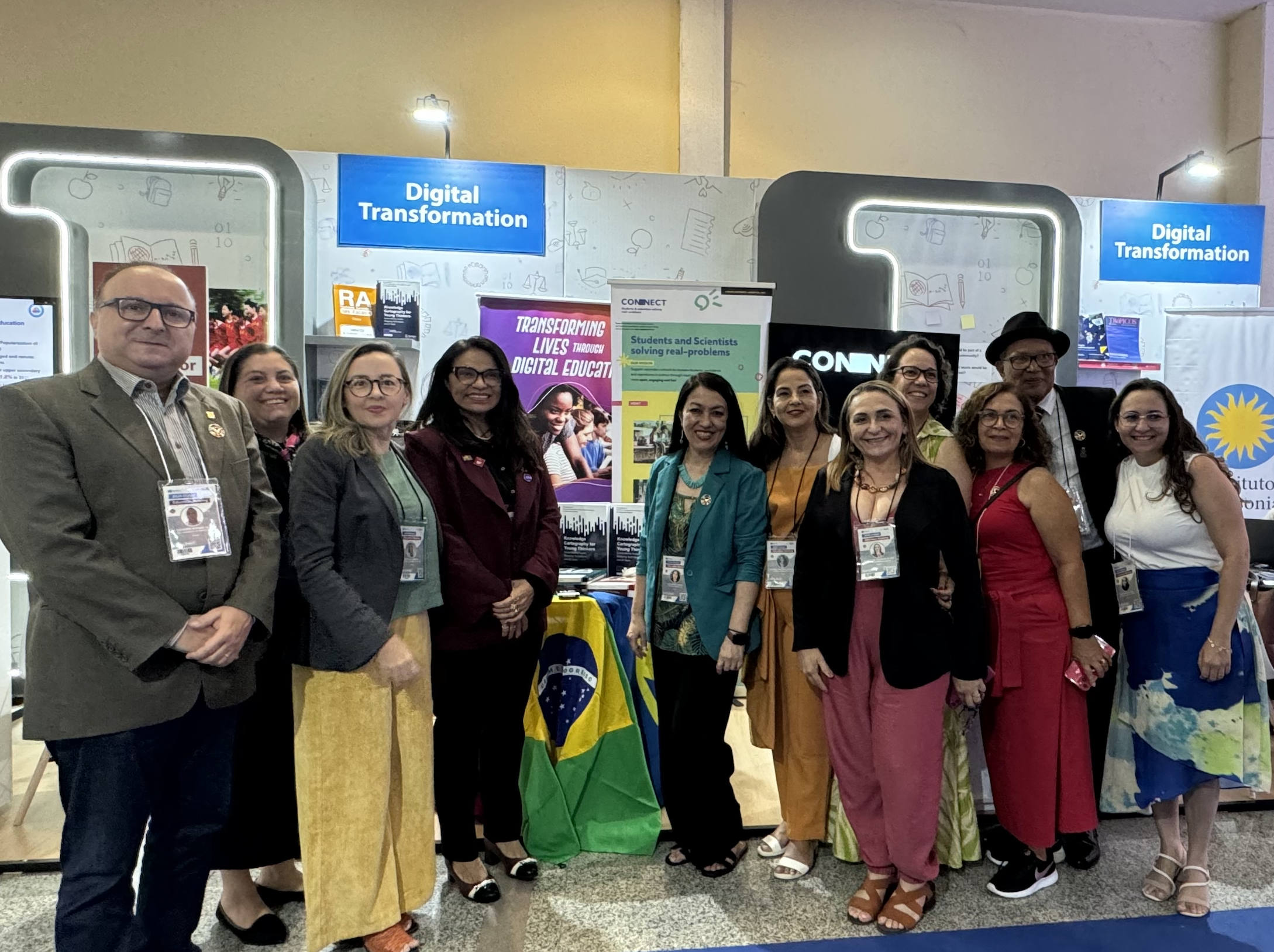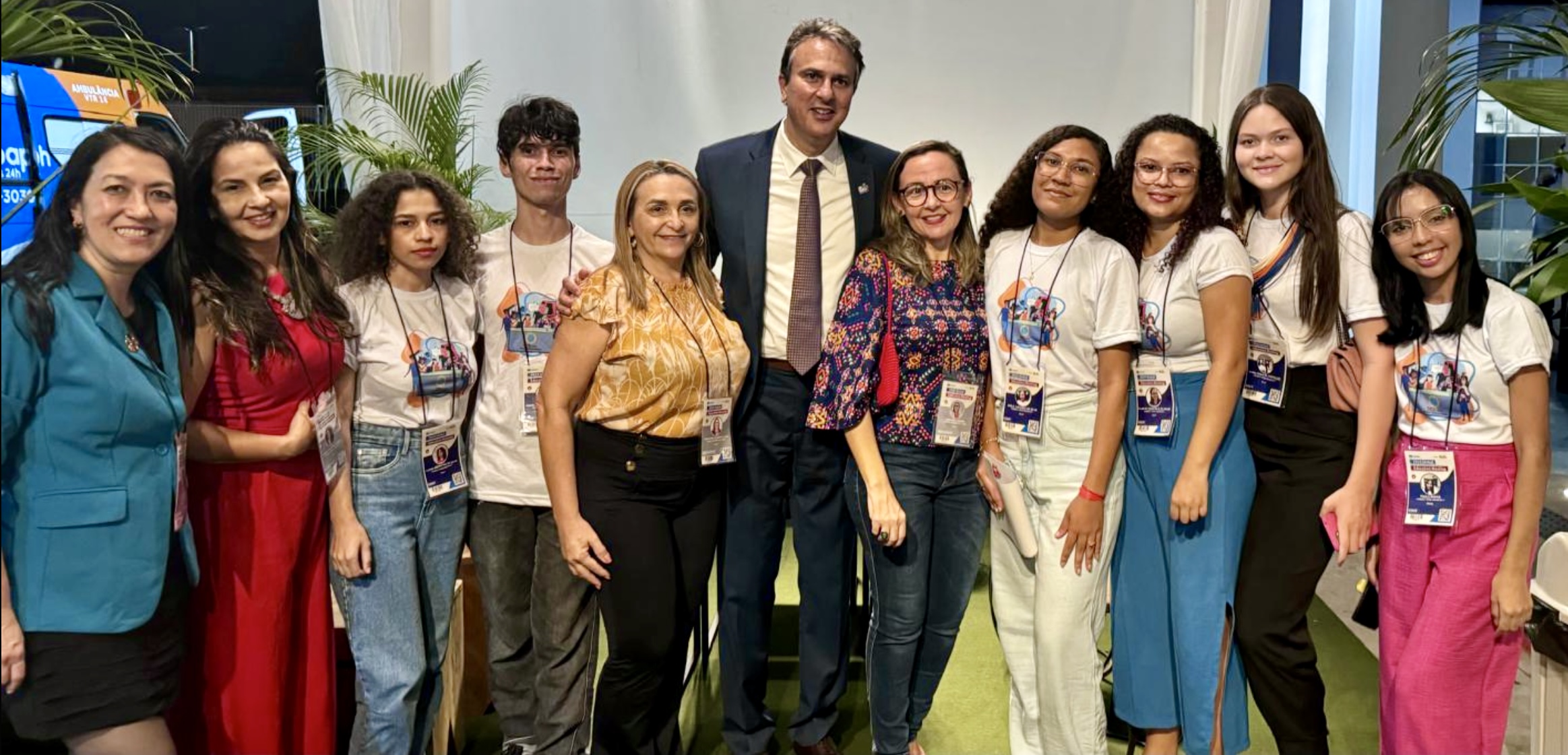Category: Uncategorized
News . Events TEACHERS: Machine Learning and Image Recognition for Weather Forecasting
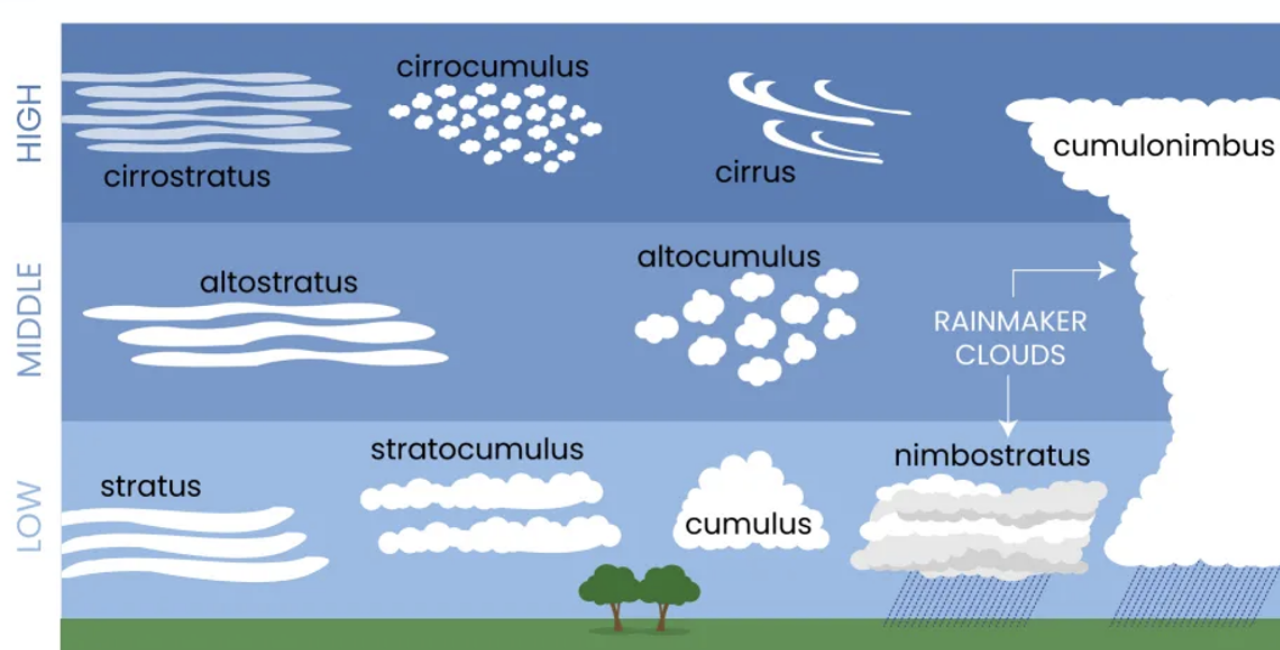
The Problem
Climate Challenges is affecting various countries in Europe. These include more frequent and intense heatwaves, droughts, and wildfires, which are exacerbated by climate change. The Mediterranean region, where Greece is located, is particularly vulnerable to these effects. The summer of 2021 saw catastrophic wildfires that ravaged large parts of the country, destroying forests, homes, and livelihoods.
Educational Scenario of Scientific Action
The educational scenario of scientific action “Machine Learning and Image Recognition in the Service of Climate Change” prepares students to create an application in which, with the help of a virtual drone, they can record clouds formation and classification using machine learning. Certainly, the application could be extended to recognise other situations, such as fires, the melting of glaciers, etc.
On the path to achieving the goal, students learn what artificial intelligence is, how it can be used in our daily lives, engage with issues of personal data protection, ethical dilemmas that arise, etc.
Sustainable Development Goals
13. Climate Action
15. Life on Land
16. Promote peaceful and inclusive societies
Curriculum
| Knowledge: | Programming, Internet, Multimedia, Internet Safety |
| Skills: | Programming, Image Processing |
| Attitude & Values: | Environmental protection, personal data, human rights, teamwork |
Curriculum – Scenario Connection
The scenario can be implemented in all middle school grades within the context of the Informatics course. If taught in the 1st Grade, it should be after some lessons in Scratch have preceded.
| Care | Internet, Search Engines, Internet Safety |
| Know | Image Processing, Programming |
| Do | Programming |
Activity Content
1. Full Document of CARE-KNOW-DO ActivitiesReferences in Greek
- Scenario Presentation
- Scenario Description
- Teacher’s Guide
- Care – Activities
- Know – Activities
- Do – Activities
- Activity sheet for discussion at home with parents
- Machine Learning for Kids- Instructions
- Videos
- Scratch code for wild animals
- Scratch code for wild animals in images
- Scratch code for Amazon deforestation
- Scratch code for Amazon deforestation in images
CARE-KNOW-DO activities:
There are separate activities for the units Care – Know – Do which lead us to our goals.
Follow the activities designed with four learning objectives:
- Understanding the scientific framework (2. Care – Activity) – «Νοιάζομαι»
- Familiarization with a machine learning application (3. Know – Activity) – «Μαθαίνω»
- Familiarization with an existing scratch program for image recognition, with a focus on endangered animals (3. Know – Activity) – «Μαθαίνω»
- Creating a scratch program for image recognition, focusing on identifying human intervention in forests via drone (4. Do – Activity)
Participatory and Fun Science
In this educational scenario of scientific action, students, family members, scientists participate. Students are invited to identify problems and create solutions, interact with experts, and take initiatives for action to protect the threatened environment
Sources:
- https://arxiv.org/abs/1609.01775
- https://wires.onlinelibrary.wiley.com/doi/epdf/10.1002/widm.1278
- https://waymo.com/waymo-driver/
- https://www.nature.com/articles/d41586-020-03187-3#ref-CR1
- https://exposing.ai/datasets/
- https://jivp-eurasipjournals.springeropen.com/articles/10.1186/s13640-018-0391-6
- https://www.microsoft.com/en-us/ai/ai-for-earth-imazon
- https://www.mdpi.com/2072-4292/11/13/1534/htm
- https://machinelearningforkids.co.uk/
- https://teachablemachine.withgoogle.com/
- https://code.org/oceans
Supporting Material
Κείμενα
- The advantages and disadvantages of facial recognition
- The usefulness of image recognition
- Harnessing_Artificial_Intelligence_for_the_Earth_report_2018
- The problem of bias in facial recognition
Images
Giorgos Panselinas
News . Events RESEARCHERS: Methodologies for Teamworking in Eco-Outwards Research
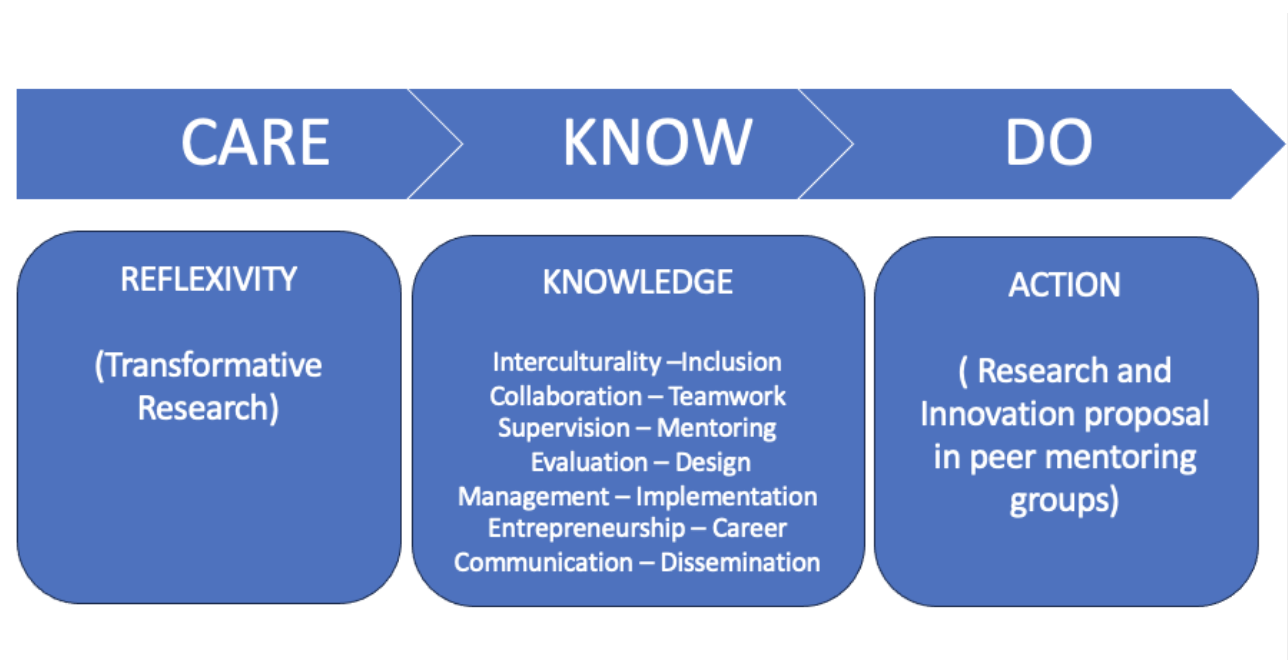
The METEOR project aims to develop and validate a model for the professional training of postgraduates and early career researchers, based on the CARE-KNOW-DO framework contributing to the Sustainable Development Goals (UN SDGs). This initiative is designed to benefit the research ecosystem aligned with the principles of Open Science, Open Schooling and Responsible Research and Innovation (RRI), integrating scientific advances with social innovation and sustainability priorities.
While the traditional PhD process emphasizes individual academic achievement within a competitive research field, METEOR fosters transversal skills, empowering early career researchers to collaborate through peer mentoring groups by ‘caring’ about transformative research, developing transdisciplinary ‘knowledge,’ and taking responsible research into ‘action’ for innovation at national and cross-national levels.
The CARE-KNOW-DO model integrates ethical considerations, knowledge acquisition, and action-oriented problem-solving. It has been implemented through a series of EU-funded projects that she led, including weSPOT, ENGAGE, and CONNECT, totalling more than €10M of funding. These projects engaged a large network of schools, universities, enterprises, civil society, and policymakers to discuss issues and solutions toward the Sustainable Development Goals using engaging participatory approaches and emerging technologies. In METEOR (€2.9M), the model will be further expanded to enhance researchers’ transversal skills involving twelve partners in these countries: Austria, Brazil, Cyprus, Denmark, Finland, Georgia, Italy, Norway, Poland, Spain, Türkiye and the United Kingdom.
METEOR’s Objectives.
1) Work with the administrative and supervisory systems
2) Create working groups WGs of 4-6 PhD/ECR (target 300 individuals, 75 groups)
3) Develop a suite of online courses and related F2F events to enhance especially skills directed towards increased research impact, for PhD/ECR and related supervisory staff.
4) Support and assess WGs in preparing demonstration projects based on groupwork, across institutions and national borders, with overall themes based on UN SDGs, and focused on societal and scientific impact.
5) Influence Institutional and governmental policies relating to the researcher development process.
Dr Okada and her team will be responsible for the implementation of METEOR in the UK contributing to five objectives:
- Gather and analyse data to support the need for an innovative doctoral training program.
- Develop and deliver online training resources using participatory methods with input from PhDs, Early Career Researchers
- Establish peer mentoring groups of researchers collaborating for proposals on the UN SDGs.
- Create policies and strategies to expand doctoral training locally and nationally.
- Share activities and results with a broader audience and ensure the project’s continuation.
METEOR activities will benefit:
- Doctoral candidates: Improved job prospects and earnings.
- Institutions: Better recruitment, supervision, and more impactful research.
- Industry/Public sector: Employees with high-level research and transversal skills.
- Society: More research focused on addressing societal challenges.
%22%20transform%3D%22translate(1.3%201.3)%20scale(2.51172)%22%20fill-opacity%3D%22.5%22%3E%3Cellipse%20fill%3D%22%23dde6e3%22%20rx%3D%221%22%20ry%3D%221%22%20transform%3D%22matrix(117.52984%20-13.3541%205.98217%2052.64929%20226.8%20131.7)%22%2F%3E%3Cellipse%20fill%3D%22%2333101c%22%20rx%3D%221%22%20ry%3D%221%22%20transform%3D%22rotate(-169.8%2020.6%2017.8)%20scale(69.73121%20247.80519)%22%2F%3E%3Cellipse%20fill%3D%22%231d2c27%22%20cx%3D%22127%22%20cy%3D%2210%22%20rx%3D%22255%22%20ry%3D%2217%22%2F%3E%3Cellipse%20fill%3D%22%239e2f54%22%20rx%3D%221%22%20ry%3D%221%22%20transform%3D%22matrix(11.364%20-52.5466%2034.97703%207.56432%2019.3%20113)%22%2F%3E%3C%2Fg%3E%3C%2Fsvg%3E) Dr. Alexandra Okada, Senior Researcher of the OU; Ms Amina Mohammed, Deputy Secretary-General of the United Nations, and Ms Stefania Giannini, UNESCO Assistant Director-General for Education.
Dr. Alexandra Okada, Senior Researcher of the OU; Ms Amina Mohammed, Deputy Secretary-General of the United Nations, and Ms Stefania Giannini, UNESCO Assistant Director-General for Education.
Dr Okada recently attended the UN SDG Summit in New York and the Global Education Leadership Conference at UNESCO Paris. She stated, “The CARE-KNOW-DO model focuses on sustainability issues and emphasizes actionable knowledge that is important for communities. Many students, teachers, families, STEM professionals, and policymakers have used it, with promotion by schools and universities. We have seen great results in enhancing learning outcomes and supporting the Agenda 2030 goals set in 2015.
Receiving this grant will enable The Open University to expand this model. We’ll innovate professional development for researchers in Education working with all fields through cross-disciplinary and cross-national peer mentoring groups. We know time is running out. We’re now at the midpoint with only six years left for the SDGs. This is a crucial time for acceleration. Education and research play a key role. The cost of inaction is too high. Nations need to invest quickly in educators and researchers. We need effective, scalable, and impactful professional development models. This is where METEOR comes in.”
References
Okada, Alexandra and Gray, Peter Barry (2023). A Climate Change and Sustainability Education Movement: Networks, Open Schooling, and the ‘CARE-KNOW-DO’ Framework. Sustainability, 15(3), article no. 2356.
News . Events UNESCO: Global Education Meeting
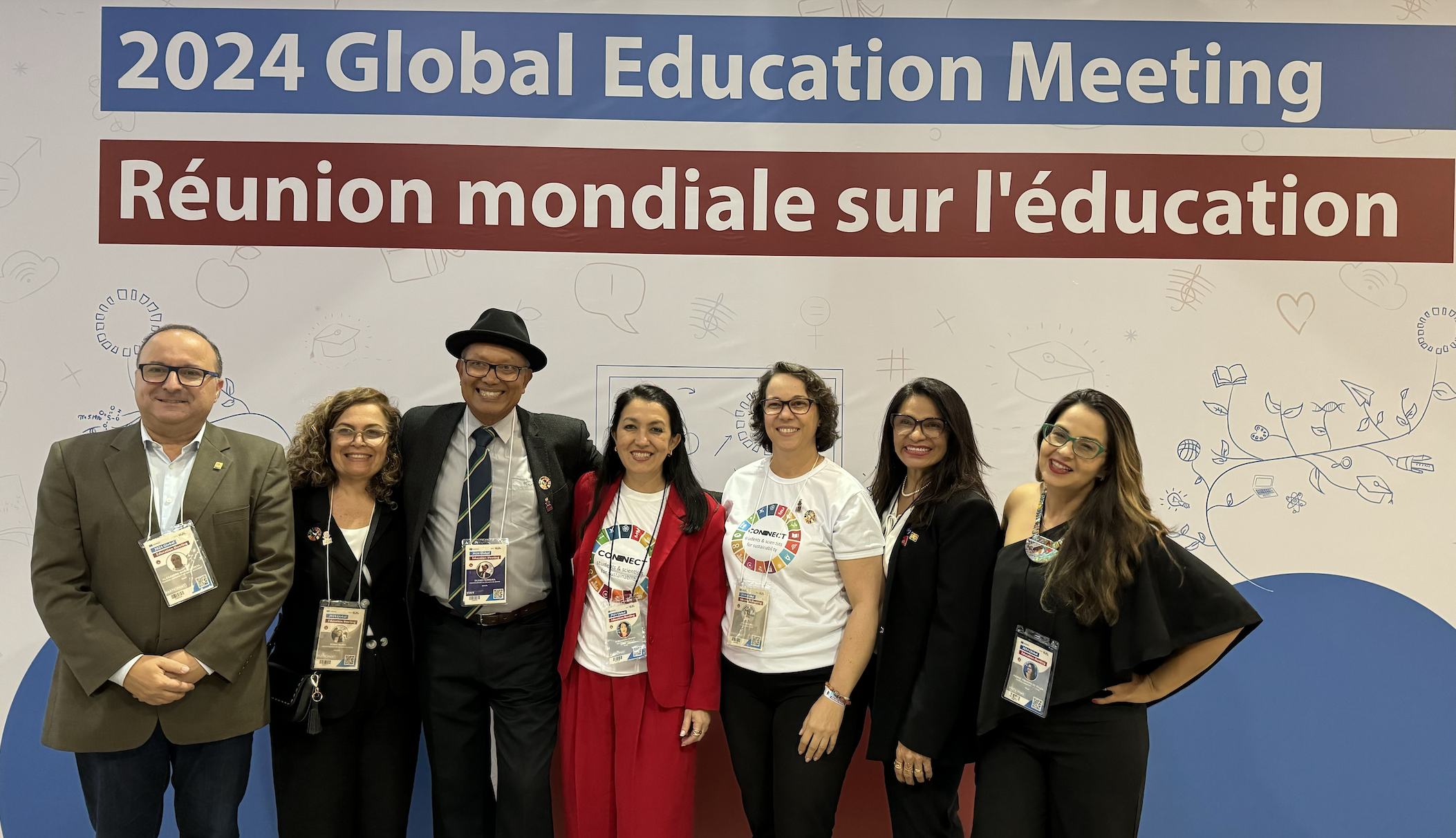
On October 31 and November 1, 2024, Dr. Okada from The Open University UK and representatives from Brazil’s CONNECT 2030 participated in UNESCO’s Global Education Meeting (GEM) in Fortaleza. This high-level event brought together ministers of education, government representatives, and international organizations, with attendees from 194 UNESCO member countries. The GEM served as a crucial forum for discussing inclusive and equitable education policies, reflecting UNESCO’s mission for sustainable development and aligning with Brazil’s G20 presidency focus on equity and inclusion.
Photo: CONNECT2030 – Recognized by UNESCO as one of the top 3 initiatives for Global Education and Digital Transformation
Relevance for Open Schooling
The GEM underscored the role of education as a social equalizer and catalyst for sustainable development, resonating strongly with the goals of Open Schooling. Open Schooling connects students to real-world challenges by linking curriculum with SDG-driven projects that engage communities and experts. The emphasis on multilateral dialogue at GEM highlights the value of collaborative, community-centered learning approaches—an essential feature of Open Schooling that empowers students to address pressing social and environmental issues.
CONNECT 2030: A Model for Digital Transformation in Open Schooling
Recognized by UNESCO as one of the top 3 global initiatives on Global Education for digital transformation, CONNECT 2030, led by Dr. Okada, exemplifies the Open Schooling approach. This network, which includes diverse organizations such as Anjos Digitais, Ceará’s Department of Education (SEDUC), and universities (UFSC, UFCA, UNEB), demonstrated Open Schooling in action at GEM. CONNECT 2030 initiatives empower youth by integrating real-world problem-solving with digital skills, fostering SDG-focused learning experiences that extend beyond the classroom.
Key Open Schooling Initiatives Presented by CONNECT 2030
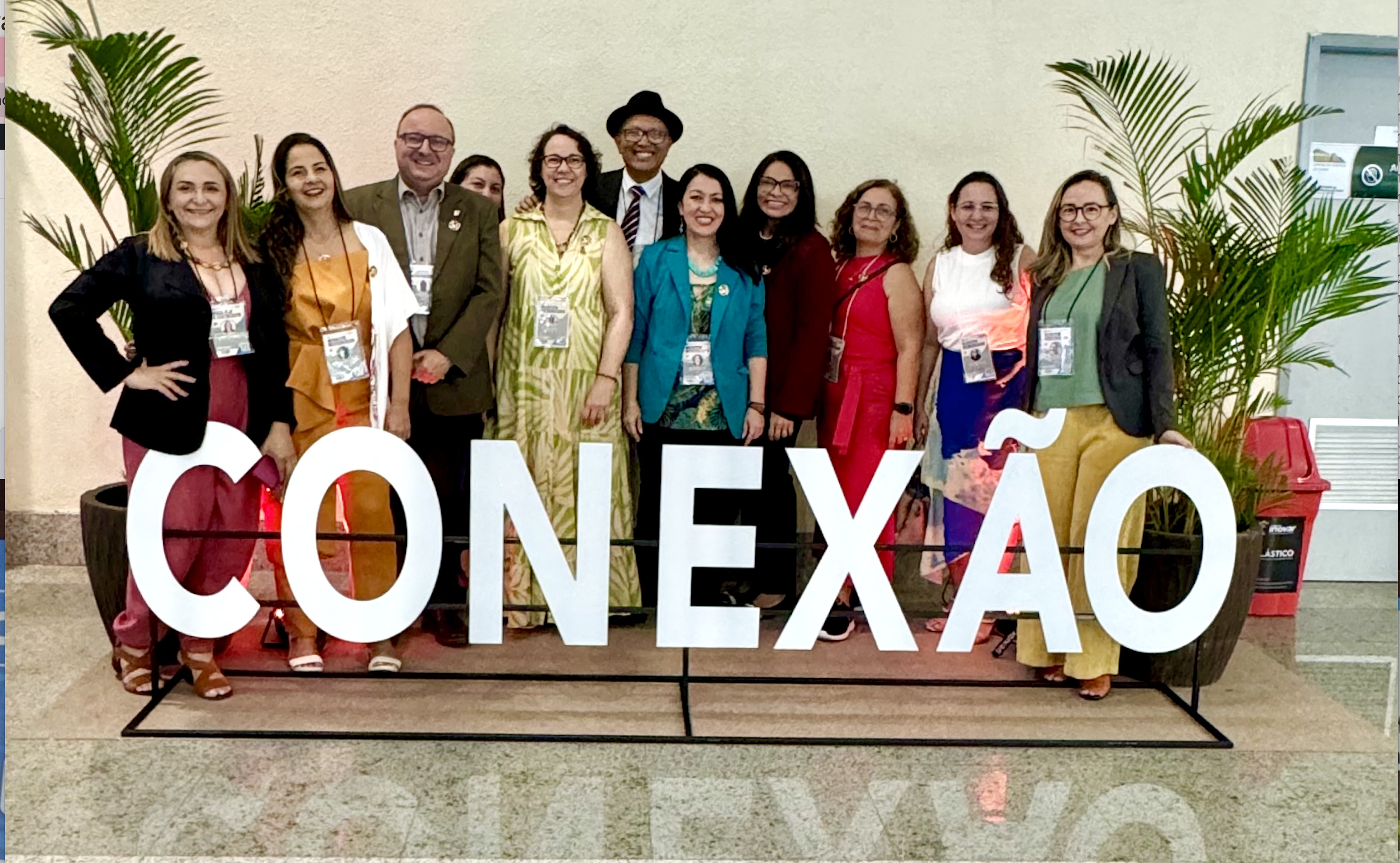
Photo3: Partners of CONNECT2030 from Federal University of Santa Catarina (Brazil South); Federal University of Cariri; University of Bahia State; Brazil Government IBICT; Anjos Digitais and The Open University.
At GEM, CONNECT 2030 showcased five Open Schooling projects, each aligning with sustainable development goals and providing concrete pathways for students to engage with and impact their communities:
- AI for Ecosystem Protection and Support for Vulnerable Communities Affected by Climate Change
Led by The OU and supported by local education authorities, this initiative enables students to learn through environmental stewardship. Youth collaborate with communities, researchers, and AI technologies to protect rainforests, wetlands, and fire-affected areas, addressing real-life challenges that include Afro-Indigenous and other vulnerable communities. - Audiovisual Resources for Heritage and Cultural Protection and Resilience
Spearheaded by UFCA with support from The OU, this project empowers students to use digital media to preserve cultural heritage and enhance urban sustainability. By engaging local communities in Brazil’s semi-arid regions, youth learn to connect with and support their heritage through educational outreach and creative expression. - Augmented Reality (AR) for Health and Well-being
This UFSC-led initiative, supported by The OU and Brazil’s Ministry of Science, Technology, and Innovation, brings AR technology into health education, helping students, families, and professionals deepen their understanding of health and well-being. It creates an interactive Open Schooling experience, making complex health topics accessible and engaging. - Digital Inclusion for Gender Equality and Equity
Led by Anjos Digitais and supported by The OU, this project promotes digital skills among women in Brazil’s North and Northeast regions. It fosters gender equity by empowering young women to participate in the digital economy, reflecting Open Schooling’s commitment to inclusive and community-driven education. - Mobile Tools for Decent Work Against Human Trafficking
UNEB leads this initiative with The OU’s support, providing youth with mobile tools and educational resources to raise awareness and prevent human trafficking. By combining education with professional support, it exemplifies Open Schooling’s mission of addressing real-world social issues while equipping students with practical, impactful skills.
Photo3: Brazilian Ministry of Education Camilo Santana with Teachers and Students of CONNECT2030. Dr. Karine Pinheiro (Federal University of Cariri) and Dr. Alexandra Okada (The Open University).
Conclusion
The Global Education Meeting highlighted the critical role of Open Schooling in fostering a sustainable, inclusive future. Through CONNECT 2030, students are equipped to tackle real-life challenges, directly engaging with their communities and learning from experts, all while contributing to the SDGs. As demonstrated at GEM, Open Schooling empowers young people as active agents of change, bridging the gap between education and community action to create lasting, meaningful impact.
GEM 2024 in numbers
· Ministers and Vice Ministers from across the globe
· country delegations
· participants
· plenaries and
parallel sessions
· exhibitors in the booth exhibit
· And best of all, the Fortaleza Declaration was adopted!
The Fortaleza Declaration
· The Fortaleza Declaration, an ambitious, action-oriented outcome document of the 2024 GEM, was adopted during the closing session, is now available in Arabic, Chinese, English, French, Russian and Spanish.
· The Declaration is a product of 10 intensive discussions and consultations with all regions and constituency groups. Consultation reports are available here.
· More about the Declaration: Fortaleza Declaration: A bold step towards inclusive education at the 2024 Global Education Meeting
Revisit the meeting
· Replay video recordings of all plenary sessions are available in English here: Day 1, Day 2.
· Photos of speakers and panels are available here.
· Takeaways from the 19 parallel sessions are available here.
Reports launched at the 2024 GEM
· 2024/5 Global Education Monitoring Report on Leadership and Education
· The Future at Risk: Why Investing in Education is Critical
· 2024 Education Finance Watch
Communications
· Press release: 251M children and youth still out of school, despite decades of progress (UNESCO report) | UNESCO
· Press conference replay.
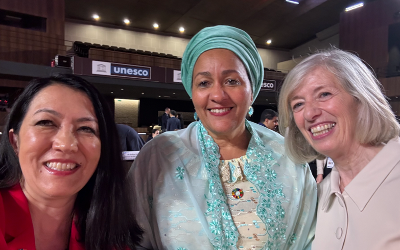 Dr. Alexandra Okada, Senior Researcher of the OU; Ms Amina Mohammed, Deputy Secretary-General of the United Nations, and Ms Stefania Giannini, UNESCO Assistant Director-General for Education.
Dr. Alexandra Okada, Senior Researcher of the OU; Ms Amina Mohammed, Deputy Secretary-General of the United Nations, and Ms Stefania Giannini, UNESCO Assistant Director-General for Education.